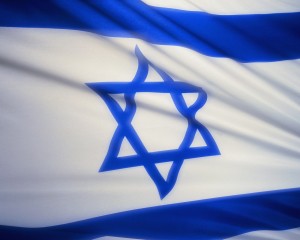Saturday
Jul172010
The Latest from Iran (17 July): Back to "Normal"?
 Saturday, July 17, 2010 at 13:17
Saturday, July 17, 2010 at 13:17  2020 GMT: A Just Republic. Meeting students, former President Mohammad Khatami has declared that people want freedom and a republic compatible with religion.
2020 GMT: A Just Republic. Meeting students, former President Mohammad Khatami has declared that people want freedom and a republic compatible with religion.2015 GMT: Electricity Squeeze. Power shortages are reportedly causing daily losses of millions of dollars for domestic companies, especially in Tehran area. The schedule of rotating closures announced by the Ministry of Energy is not being implemented.
NEW Change for Iran: Why Twitter Has Made a Difference
UPDATED Iran Analysis: When “War Chatter” Poses as Journalism (Step Up, Time Magazine)
Iran: Thursday’s Suicide Bombings in Zahedan
The Latest from Iran (16 July): Explosions and Conflict
2005 GMT: The Sanctions. It appears that Germany may be accepting the restrictions on Iranian banks: reports indicate Bank Sepah accounts in Frankfurt will be closed.
A study by a former US Treasury Department analyst had found that five German banks continue to do business with Iranian entities sanctioned by the most recent UN Security Council measures and that four major Iranian banks sanctioned by the Treasury Department or the Security Council continued to operate in Germany.
1940 GMT: Not Diplomatic Immunity (cont.). The Swiss and Iranian Governments have denied earlier reports (see 1605 GMT) in Iran's state media that Switzerland's Ambassador was detained for hours on a journey to northeastern Iran.
Switzerland's foreign ministry said Ambassador Livia Leu Agosti had only been "checked by local police during a trip". Iranian foreign ministry spokesman Ramin Mehmanparast said that the story had "been covered inaccurately and wrongly".
1935 GMT: Rafsanjani Watch. Former President Hashemi Rafsanjani has joined in the condemnation of Thursday's bombing in Zahedan, "Historical records show that in Iran and countries like Iraq, Afghanistan and Palestine..., terrorists and occupiers have never been and never will be able to achieve their ominous objectives through bloodshed and the massacre of innocents."
However, Rafsanjani --- at least in the summary of his remarks --- did not echo the theme of blaming outside powers such as the US for supporting the attacks.
1815 GMT: The Bazaar Strikes. Green Voice of Freedom, summarising this week's strikes, adds Isfahan and Mashaad to Tehran and Tabriz.
1605 GMT: Not Diplomatic Immunity. Iranian authorites detained the Swiss Ambassador, Livia Leu Agosti, freeing her a few hours later.
Agosti was travelling in North Khorasan Province in northeastern Iran when she was arrested Diplomatic immunity did not apply, according to the Iranian Foreign Ministry, ""because her identity was not established at the time".
It is not clear why the Ambassador was detained.
1545 GMT: Russia, Iran, and the Oil Squeeze. I thought, given this week's news about agreement for a joint oil bank, that Moscow and Tehran were now good energy buddies despite the international sanctions.
So how to explain this bit of Tehran pressure?
Oil Minister Massoud Mirkazemi warned on Saturday that Iran will blacklist foreign firms like Russian energy giant Lukoil that pull out of projects because of sanctions against Tehran: "If one of the companies acts against Iran, we will be forced to consider the reality and put that company on a blacklist."..."They will no longer work in our country," he said.
Mirkazemi singled out the case of Lukoil, which announced it was pulling out in March as new UN, US and EU sanctions over Tehran's controversial nuclear programme loomed. The minister said the Russian firm had reneged on its commitments in the Anaran oilfield which it discovered in western Iran in 2005.
But he added that Iran might consider continuing to work with Lukoil "if we can adjust the content of the agreement."
1410 GMT: A Different Line on Zahedan Bombing. An interesting alternative to the US-Iran dynamic on blame for Thursday's two suicide bombings in southeastern Iran. The reformist Islamic Iran Participation Front has said that “an iron fist” is not an adequate response to the problems in Sistan & Baluchistan . Indeed, the violence occurs amidst the “coup d’etat government’s policies of intimidation, violence, and oppression which is being forced on every aspect of every single Iranian's life, equally”.
1245 GMT: In Case Another Excuse Was Needed for US-Iran Scrapping. President Obama has condemned the Zahedan bombings as an "intolerable offense".
Those words, however, are not going to stem the Iran Government's rhetoric over the attack. Revolutionary Guard commander Massoud Jazayeri has warned, "Jundollah has been supported by America for its terrorist acts in the past....America will have to await the fallout of such criminal and savage measures."
And it looks like Speaker of Parliament Ali Larijani is going to join in: "The terrorist attack in the southeast of the country took place with the backing of the US....We have strong documents and intelligence that [executed Jundullah leader Abdolmalek] Rigi was linked to the US, and the US supported him in terror against Iran."
1100 GMT: The Zahedan Bombings. The Government's changing line on Thursday's suicide bombings --- Jundullah is no longer responsible since they had been "defeated" --- is being challenged. Heshmatollah Fallahatpisheh, a member of Parliament's National Security Commission, has demanded publication of documents about Jundullah.
1050 GMT: Parliament v. President (On All Fronts). Challenges here, there, and everywhere....
Ahmad Tavakoli has maintained his leading role in the pressure against the Government, asking for an investigation of former Tehran Prosecutor General and current Presidential aide Saeed Mortazavi over the Kahrizak Prison abuse case.
On the economic front, Elyas Naderan has announced a plan to return Iran Telecom to public control. Emad Hosseini has declared that there is no possibility of implementing subsidy cuts.
And just getting personal, reformist Abdollah Ramezanzadeh has filed a complaint against pro-Ahmadinejad MP Sattar Hedayatkhah.
1045 GMT: More Feuding over Universities. The Guardian Council has rejected a Parliament project supporting the establishment and strengthening of independent academic centres.
1010 GMT: Parliament v. President. Khabar Online claims 80% of members of Parliament have approved the demand for impeachment of Minister of Agriculture Sadegh Khaliliyan.
1005 GMT: Regime Moves to "Hard War"? Bahram Rafiee in Rooz Online posts the analysis that the rhetoric of the regime is shifting from a "soft war" to "hard war" with its enemies. He cites an example in the Supreme Leader's speech to Revolutionary Guard commanders this week, “All national officials must carry out their heavy duties in the various fields and be ready to confront anything as they have been for the past 31 years. Certainly, and without any doubt, the great Iranian nation and the Islamic republic will continue to emerge victorious from this perpetual struggle, as they have been in the past.”
0830 GMT: After the Bombings. Iranian state media reports that 40 suspects have been arrested over Thursday's double suicide bombing in southeastern Iran. State TV has shown thousands attending victims' funerals, chanting "Death to Terrorists" and "Down with the US".
0810 GMT: We have posted a Saturday feature, "Change for Iran: Why Twitter Has Made a Difference".
0710 GMT: A Philosopher's Stand. The German philosopher Otfried Höffe has written in Frankfurter Allgemeine that he will not attend UNESCO's World Day of Philosophy in Tehran, given the human rights abuses of the "unpredictable dictatorship": "With [Immanuel] Kant's reflections on the relationship between philosophy and revelation, I wanted to contribute to our understanding of religion in a highly industrialized country. But now I see myself forced to withdraw from the commitment."
0625 GMT: Political Prisoner Watch. Azeri activist Firouz Yousefi has been released on bail after being arrested for acts against national security.
0555 GMT: Beyond the tragedy of at least 27 lives lost and 300 people wounded in Thursday's explosions in southeastern Iran (see yesterday's updates), there was the curiosity of the Iranian regime trying to resurrect the "normal" after the event.
Initially, Iran's state media had blamed the Baluch insurgent group Jundullah --- who did indeed claim responsibility --- for the two suicide bombings. Then some official somewhere realised that this would expose the recent narrative that, with a crackdown on Jundullah and the executive Abdolmalek Rigi, order and security had been restored.
And so the media line was revised: the bombings were no longer the work of Jundullah but of some mysterious "hard-line" Sunni group. "Normal" would come in the allegation --- for this is always the allegation --- that "the US, Israel, and some European countries" (the Revolutionary Guard's Yadollah Javani) were behind "terrorist attacks...trained, financed and equipped form beyond the borders" (Deputy Minister of Interior Ali Abdollahi). Washington even hid its perfidy behind the false "humanitarian gesture" of Secretary of State Hillary Clinton's condemnation of the bombings.
But this was not only the curiosity of the "normal". For the not-exactly-normal incident in Zahedan might serve the regime by deflecting attention from life that is not-exactly-normal elsewhere. With Iran back to work today, one question is whether bazaar merchants in Tehran and Tabriz join in or whether some stoppage or strike continues.
And there is the bread-and-butter conflict within the establishment. The New York Times has taken notice in an article, "Iran’s President Now Aims at Rivals Among Conservatives" --- which might also should have considered, "Iran's Conservatives Now Aim at the President" --- and adds this information. "Moderate conservative" Morteza Nabavi said in an interview published Friday, "“Now that they [the Government] think they have ejected the reformists, maybe they think it is time to remove their principalist opponents.”
Nabavi also indicated that part of the conflict stems from the beliefs of Ahmadinejad and allies over the return with Shia's "disappeared" or "hidden Imam: “These people say they have direct contact with the 12th imam so they can lead us. This is not just a matter of opposition to government by the clergy but something much deeper.”
tagged  Abdollah Ramezanzadeh,
Abdollah Ramezanzadeh,  Ahmad Tavakoli,
Ahmad Tavakoli,  Ali Abdollahi,
Ali Abdollahi,  Ali Larijani,
Ali Larijani,  Elyas Naderan,
Elyas Naderan,  Emad Hosseini,
Emad Hosseini,  Firouz Yousefi,
Firouz Yousefi,  Frankfurter Allgemeine,
Frankfurter Allgemeine,  Germany,
Germany,  Green Voice of Freedom,
Green Voice of Freedom,  Guardian Council,
Guardian Council,  Hashemi Rafsanjani,
Hashemi Rafsanjani,  Heshmatollah Fallahatpisheh,
Heshmatollah Fallahatpisheh,  Immanuel Kant,
Immanuel Kant,  Iran Telecom,
Iran Telecom,  Islamic Iran Participation Front,
Islamic Iran Participation Front,  Islamic Revolution Guards Corps,
Islamic Revolution Guards Corps,  Jundullah,
Jundullah,  Khabar Online,
Khabar Online,  LUKoil,
LUKoil,  Livia Leu Agosti,
Livia Leu Agosti,  Massoud Jazayeri,
Massoud Jazayeri,  Massoud Mirkazemi,
Massoud Mirkazemi,  Mohammad Khatami,
Mohammad Khatami,  Morteza Nabavi,
Morteza Nabavi,  New York Times,
New York Times,  Otfried Höffe,
Otfried Höffe,  Russia,
Russia,  Sadegh Khaliliyan,
Sadegh Khaliliyan,  Saeed Mortazavi,
Saeed Mortazavi,  Sattar Hedayatkhah,
Sattar Hedayatkhah,  Switzerland,
Switzerland,  UNESCO,
UNESCO,  United Nations Security Council,
United Nations Security Council,  Yadollah Javani in
Yadollah Javani in  Middle East & Iran
Middle East & Iran
 Abdollah Ramezanzadeh,
Abdollah Ramezanzadeh,  Ahmad Tavakoli,
Ahmad Tavakoli,  Ali Abdollahi,
Ali Abdollahi,  Ali Larijani,
Ali Larijani,  Elyas Naderan,
Elyas Naderan,  Emad Hosseini,
Emad Hosseini,  Firouz Yousefi,
Firouz Yousefi,  Frankfurter Allgemeine,
Frankfurter Allgemeine,  Germany,
Germany,  Green Voice of Freedom,
Green Voice of Freedom,  Guardian Council,
Guardian Council,  Hashemi Rafsanjani,
Hashemi Rafsanjani,  Heshmatollah Fallahatpisheh,
Heshmatollah Fallahatpisheh,  Immanuel Kant,
Immanuel Kant,  Iran Telecom,
Iran Telecom,  Islamic Iran Participation Front,
Islamic Iran Participation Front,  Islamic Revolution Guards Corps,
Islamic Revolution Guards Corps,  Jundullah,
Jundullah,  Khabar Online,
Khabar Online,  LUKoil,
LUKoil,  Livia Leu Agosti,
Livia Leu Agosti,  Massoud Jazayeri,
Massoud Jazayeri,  Massoud Mirkazemi,
Massoud Mirkazemi,  Mohammad Khatami,
Mohammad Khatami,  Morteza Nabavi,
Morteza Nabavi,  New York Times,
New York Times,  Otfried Höffe,
Otfried Höffe,  Russia,
Russia,  Sadegh Khaliliyan,
Sadegh Khaliliyan,  Saeed Mortazavi,
Saeed Mortazavi,  Sattar Hedayatkhah,
Sattar Hedayatkhah,  Switzerland,
Switzerland,  UNESCO,
UNESCO,  United Nations Security Council,
United Nations Security Council,  Yadollah Javani in
Yadollah Javani in  Middle East & Iran
Middle East & Iran 



